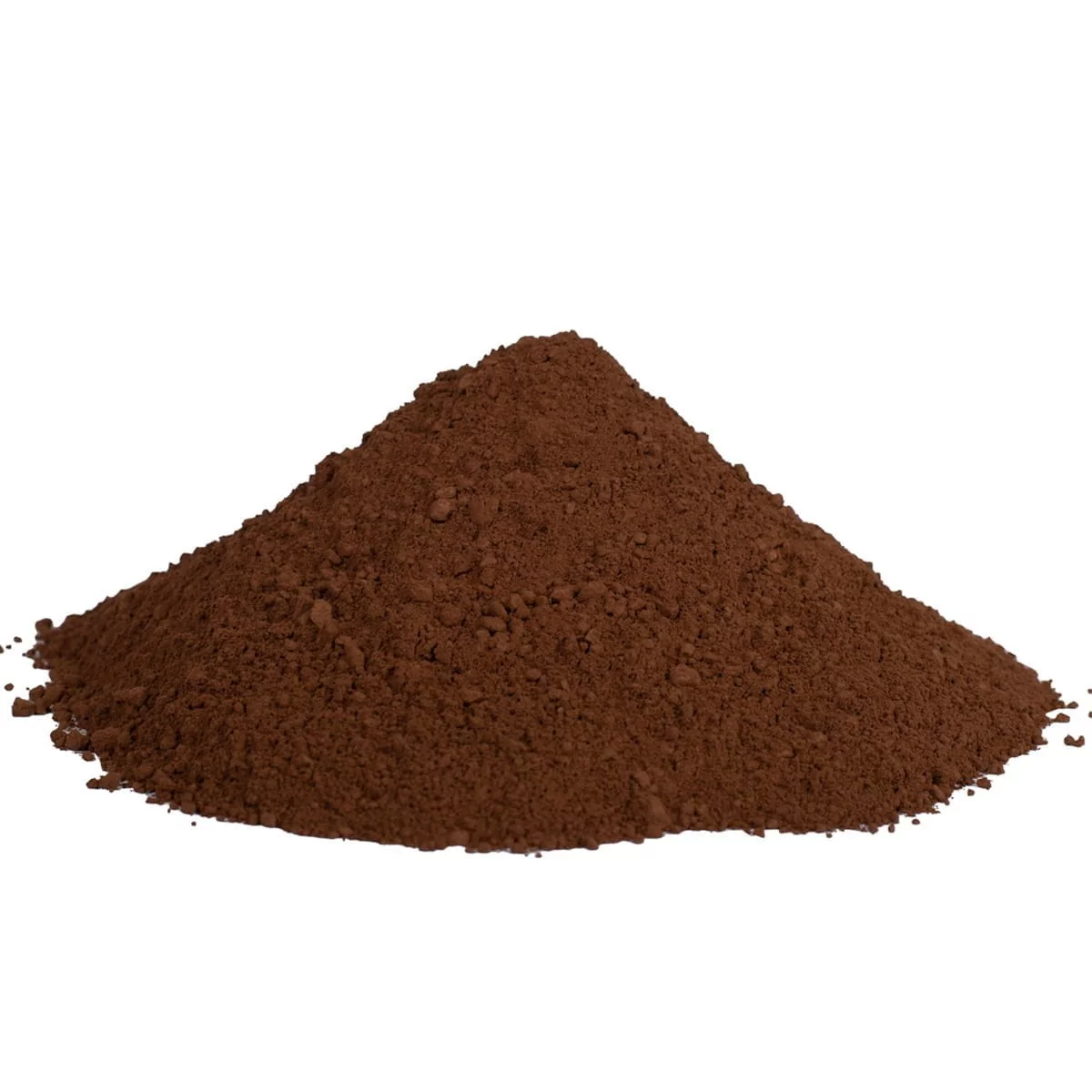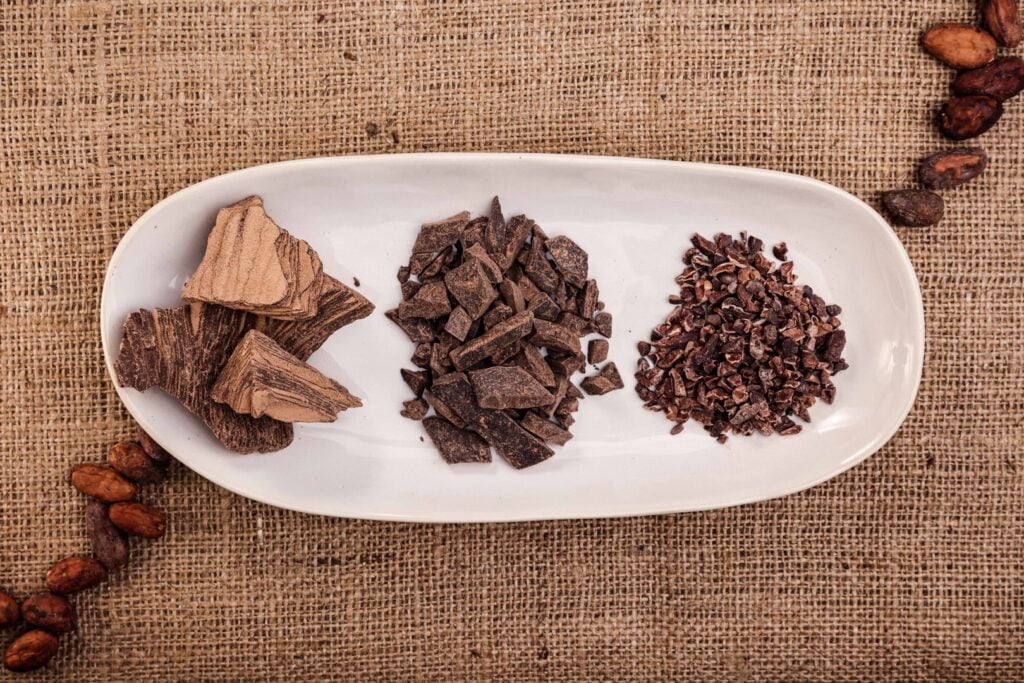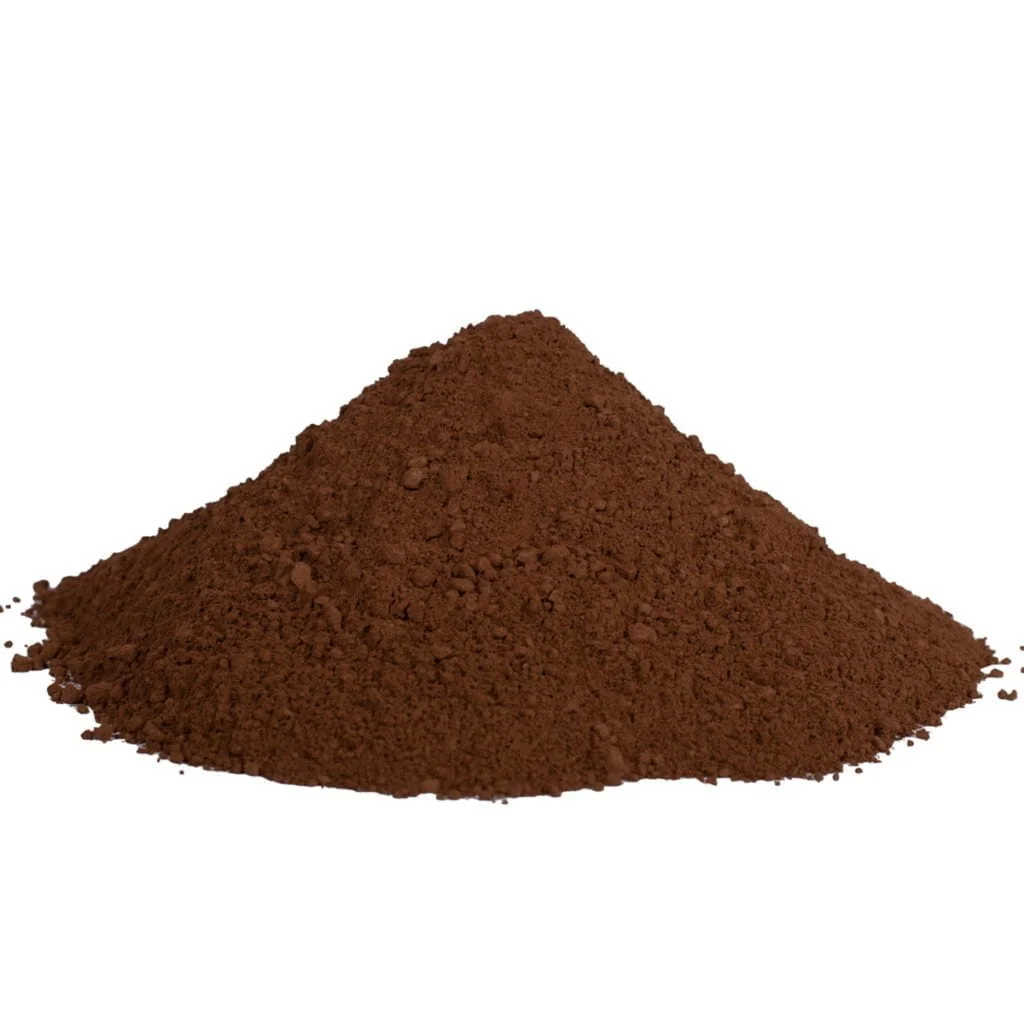What is alkalized cocoa and how does it differ from non-alkalized cocoa?

Featured products Learn more about our offer
View allCocoa comes in various forms – powders, lumps, bars or paste. Cocoa powder is particularly popular in the cocoa industry, and we can find it in two forms – it is alkalized cocoa and non-alkalized cocoa. What is the difference between the two types of cocoa and what is the alkalization process?


Cocoa paste (ceremonial cocoa) and cocoa nibs, or crushed cocoa beans
Black cocoa – alkalized cocoa
Black cocoa. It has an intense, dark color and a distinctive flavor. They are mainly used in confectionery – for baking cakes, preparing creams, icings, decorations, but also beverages. However, in its original form, cocoa is much lighter. So how is this black powder obtained?
The alkalization process, known as early as the 1920s, is responsible for the black color. XIX century in the Netherlands. Alkalization, or dutching, began to be used to achieve better solubility of cocoa powder. However, it was quickly noticed that this process not only promotes better dissolution of cocoa in water, but also provides the opportunity to change the color and taste of the cocoa beverage.
From a technological point of view, alkalization involves mixing cocoa with an alkaline solution and acting on the mixture with sufficiently high pressure and temperature. Finally, remove excess moisture by heating or drying. Alkalization can vary in degree, depending on the strength of the solution, type of alkaline compound, reaction time and temperature [4].


The phenomenon of black cocoa
Because of its origins, black cocoa is also often referred to as dutch cocoa. In its natural form, cocoa is mildly acidic and tart, with a pH between 5 and 5.6. The alkalization (dutch process) neutralizes cocoa’s natural acidity, increases its pH to about 7-8, makes it darker (hence the term black cocoa) and affects its flavor [1].
What determines the popularity of black cocoa? Alkalized cocoa finds many supporters due to its milder taste than natural cocoa, much lower acidity and bitterness. This type of cocoa is also credited with better dispersibility, which makes it easier to prepare cocoa beverages. What about the health properties of cocoa that undergoes processing?
Is alkalized cocoa healthy?
Natural, unprocessed cocoa is considered a real treasure trove of vitamins. Among other things, in cocoa we can find flavonoids, alkaloids, antioxidants, a whole range of minerals, vitamins, as well as beneficial cocoa fat. Cocoa-based products show health benefits especially for the cardiovascular system due to their relatively high content of flavanols, especially epicatechins [3].
However, while untreated cocoa is high in valuable compounds, the alkalization process involving numerous complex chemical reactions depletes cocoa’s natural richness, leading to undesirable changes in cocoa’s nutritional, functional and microbiological properties [5].
As a result of the alkalization process, one study showed, among other things, a reduction in the amount of protein in alkalized cocoa, a reduction in amino acids, a reduction in total fat content, a reduction in antioxidant activity, a reduction in flavanols, and a reduction in theobromine and caffeine content [5].
How is natural cocoa powder made?
The process of creating organic cocoa powder begins with cultivation on certified plantations. The beans are hand-harvested, selected for the best quality and fermented to reduce the bitterness of the cocoa bean.
After the grains are cleaned in natural water, they are scooped out and the core is extracted, which is divided into nuggets. Subsequently, the cocoa nuggets are ground into a paste and the resulting fat is extracted along with it. The remainder is dried and finely ground into cocoa powder.


Natural, non-alkalized cocoa powder
Alkalized cocoa or natural cocoa?
Natural, organic cocoa will have a more intense, bitter taste and will retain most of its valuable nutritional properties. Black alkalized cocoa will satisfy chocolate gourmands who are not fond of the bitter taste, but its health-promoting effects will be clearly limited.
Both natural and alkalized coc oa contain much less fat than cocoa beans, with alkalized cocoa having a fat content of only about 10-12%, while organic cocoa has a fat content of about 20-22%.
Natural cocoa is undoubtedly healthier, contributes to the well-being, has a beneficial effect on the heart and other organs. Consumed regularly, it provides the body with valuable compounds and supports the body and spirit.
